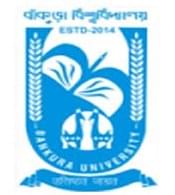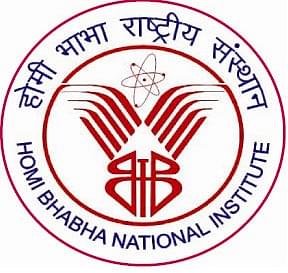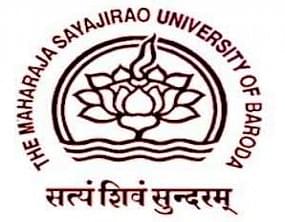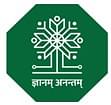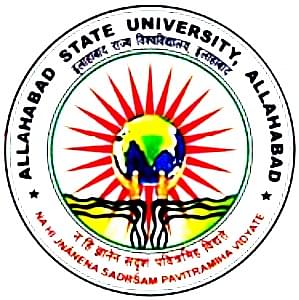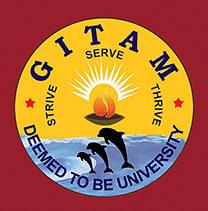Introduction
about Ph. D in De-commodifying agri
Objectives
of the Program
The primary aim of a Ph.D. in
De-commodifying Agriculture is to explore and develop innovative strategies for
reshaping agricultural practices and food systems. This includes:
Sustainability:
Promoting agricultural methods that preserve natural resources, enhance
biodiversity, and reduce environmental impacts.
Equity:
Ensuring fair distribution of resources, improving livelihoods for farmers, and
fostering inclusive food systems.
Resilience:
Building robust agricultural systems that can withstand economic, climatic, and
social shocks.
Key Areas of
Study
Students in this program typically
engage with a broad range of topics, including but not limited to:
Agroecology:
Study of ecological processes applied to agricultural production systems. This
includes sustainable farming practices that integrate environmental health,
economic profitability, and social equity.
Food
Sovereignty: Examination of the rights of people to define
their own food systems. This includes local food systems, community-supported
agriculture, and the role of smallholder farmers.
Sustainable
Agricultural Practices: Techniques and practices that reduce
the reliance on chemical inputs, promote biodiversity, and improve soil health.
Agricultural
Policy and Governance: Analysis of policies and governance
structures that impact agriculture, with a focus on creating frameworks that
support de-commodification.
Economic
Alternatives: Exploration of economic models that move away
from commodity-based agriculture, such as cooperatives, fair trade, and
direct-to-consumer sales.
Social
Justice in Agriculture: Understanding the social dimensions of
agriculture, including labor rights, land tenure, and the impact of
agribusiness on rural communities.
Research and
Methodology
Ph.D. candidates conduct original
research that contributes to the body of knowledge in de-commodifying
agriculture. This research may involve:
Field
Studies: Hands-on research in farms and communities to observe
and analyze alternative agricultural practices.
Case
Studies: In-depth analysis of specific examples where
de-commodification strategies have been implemented.
Quantitative
Research: Data-driven studies assessing the impact of different
agricultural practices on economic, social, and environmental outcomes.
Qualitative
Research: Interviews, surveys, and ethnographic studies to
understand the experiences and perspectives of farmers, consumers, and other
stakeholders.
Career
Opportunities
Graduates with a Ph.D. in
De-commodifying Agriculture are well-equipped for a variety of careers,
including:
Academic
and Research Positions: Teaching and conducting research at
universities and research institutions.
Policy
and Advocacy: Working with governmental and non-governmental
organizations to develop and promote sustainable agricultural policies.
Consulting:
Advising farmers, cooperatives, and agricultural businesses on sustainable
practices and alternative economic models.
Community
Development: Leading initiatives that support local food
systems, community gardens, and other grassroots agricultural projects.
Conclusion
A Ph.D. in De-commodifying
Agriculture is ideal for individuals passionate about transforming agriculture
to be more sustainable, equitable, and resilient. It prepares graduates to be
thought leaders and change agents in the global movement towards more just and
sustainable food systems.
What is
admission process for Ph. D in De-commodifying agri?
The admission process for a Ph.D. in De-commodifying
Agriculture is comprehensive and designed to assess the academic readiness,
research potential, and commitment of applicants to this interdisciplinary and
socially impactful field. While specific requirements may vary by institution,
the following steps generally outline the process:
1. Research and Choose Programs
Identify
Suitable Programs: Research universities and departments that
offer a Ph.D. in areas related to de-commodifying agriculture, such as
sustainable agriculture, agroecology, environmental studies, or agricultural
economics.
Faculty
and Resources: Look for programs with faculty whose research
interests align with your own and that have the necessary resources and
facilities.
2. Meet Educational Requirements
Master’s
Degree: Most programs require applicants to have a master’s
degree in a relevant field such as agriculture, environmental science,
economics, sociology, or related disciplines. Some programs may accept
applicants with a bachelor’s degree and significant research experience.
Academic
Record: A strong academic record with a competitive GPA,
typically a minimum of 3.0 on a 4.0 scale.
3. Prepare Application Materials
Application
Form: Complete the university’s application form, available on
their website.
Transcripts:
Submit official transcripts from all previous post-secondary institutions
attended.
Letters
of Recommendation: Typically, 2-3 letters of recommendation
from professors or professionals who can attest to your academic abilities,
research skills, and suitability for the program.
Statement
of Purpose: A detailed statement outlining your research
interests, career goals, and reasons for pursuing a Ph.D. in De-commodifying
Agriculture. This should highlight your background, relevant experience, and
how the program aligns with your objectives.
Research
Proposal: A concise proposal of your intended research topic.
This should demonstrate your understanding of the field, identify a research
gap, and outline your proposed methodology.
4. Additional Requirements
GRE
Scores: Some programs may require GRE scores, though this is
becoming less common. Check the specific requirements of each program.
English
Proficiency: For international students, proof of English
proficiency through tests such as TOEFL or IELTS is often required.
5. Submit Application
Application
Fee: Pay the non-refundable application fee, which varies by
institution.
Deadlines:
Ensure all materials are submitted by the program’s application deadline, which
can be several months before the start of the academic year.
6. Interviews
Interview:
After initial screening, shortlisted candidates may be invited for an
interview. This can be conducted in person or via video conference and allows
faculty to assess your research interests and fit for the program more deeply.
7. Financial Aid and Scholarships
Funding:
Investigate financial aid options, scholarships, fellowships, and
assistantships offered by the program. Many Ph.D. programs provide funding
packages that include tuition waivers, stipends, and research or teaching
assistantships.
8. Notification and Acceptance
Admission
Decision: Programs typically notify applicants of their
admission status within a few weeks to a few months after the application
deadline.
Acceptance:
If accepted, review the offer and respond by the specified deadline. Some
programs may require an initial deposit to secure your place.
Final Tips
Networking:
Reach out to current students or alumni to gain insights into the program and
its culture.
Faculty
Contact: It can be beneficial to contact potential advisors to
discuss your research interests and see if they are accepting new Ph.D.
students.
By carefully preparing your
application and ensuring you meet all requirements, you can enhance your
chances of being admitted to a Ph.D. program in De-commodifying Agriculture.
This program offers an opportunity to contribute significantly to the development
of sustainable and equitable agricultural systems.
What is
eligibility for Ph. D in De-commodifying agri ?
Academic
Qualifications
Master’s
Degree:
Most programs require applicants to hold a master's degree
in a relevant field such as agriculture, environmental science, agroecology,
agricultural economics, sociology, or a related discipline.
Some programs may consider applicants with a bachelor’s
degree, provided they have substantial research experience and a strong
academic record.
Academic
Record:
A competitive GPA is usually required, typically a minimum
of 3.0 on a 4.0 scale, though some programs may have higher requirements.
Relevant
Experience
Research
Experience:
Demonstrated research experience in a relevant field is
highly beneficial. This can include research projects, publications, or
professional experience related to sustainable agriculture, agroecology, food
systems, or rural development.
Professional
Experience:
Relevant professional experience in agriculture,
environmental policy, community development, or related areas can strengthen an
application.
Application
Materials
Statement
of Purpose:
A well-crafted statement detailing your research interests,
career goals, and reasons for pursuing a Ph.D. in De-commodifying Agriculture.
It should highlight your background, relevant experiences, and how your
interests align with the program and faculty expertise.
Research
Proposal:
Some programs require a preliminary research proposal
outlining your intended research topic, identifying a research gap, and
proposing a methodology. This demonstrates your ability to conduct independent
research.
Letters
of Recommendation:
Typically, 2-3 letters of recommendation from academic
advisors, professors, or professionals who can attest to your academic
capabilities, research skills, and suitability for doctoral study.
Standardized
Tests
GRE
Scores:
While the requirement for GRE scores is decreasing, some
programs may still require them. Always check the specific requirements of each
program.
English
Proficiency:
For non-native English speakers, proof of English
proficiency through tests such as TOEFL or IELTS is often required.
Additional
Requirements
Interview:
Some programs may require an interview as part of the
selection process. This interview, conducted in person or via video conference,
allows the faculty to evaluate your fit for the program and your research
potential.
Writing
Sample:
A sample of your academic writing, such as a published
paper, thesis, or research report, may be required to demonstrate your writing
and analytical skills.
What is
syllabus for Phd in De-commodifying agri ?
Core Courses
These foundational courses cover
essential theories, methodologies, and practices in de-commodifying
agriculture:
Agroecology
and Sustainable Farming Practices
Principles of agroecology and its application in sustainable
farming systems.
Techniques for enhancing biodiversity, soil health, and
ecological resilience.
Food
Sovereignty and Security
Theories and practices related to food sovereignty and
security.
Examination of local food systems, community-supported
agriculture, and the role of smallholder farmers.
Environmental
Impact of Agricultural Practices
Analysis of the environmental impacts of conventional and
alternative agricultural practices.
Strategies for reducing the ecological footprint of
agriculture.
Agricultural
Economics and Policy
Economic theories and policies affecting agriculture.
Evaluation of policies that support de-commodification, such
as subsidies for sustainable practices, fair trade, and direct marketing
initiatives.
Social
Justice and Rural Development
Exploration of social justice issues in agriculture,
including labor rights, land tenure, and access to resources.
Strategies for promoting rural development and improving
livelihoods.
Research
Methodology
Courses focusing on the research
skills needed for doctoral-level study:
Qualitative
Research Methods
Techniques for conducting qualitative research, including
interviews, case studies, and ethnography.
Methods for analyzing qualitative data.
Quantitative
Research Methods
Statistical methods and data analysis techniques relevant to
agricultural research.
Design and implementation of surveys and experiments.
Interdisciplinary
Studies
Courses that integrate knowledge
from various disciplines to address complex issues in de-commodifying
agriculture:
Climate
Change and Agriculture
Impact of climate change on agricultural systems.
Adaptation and mitigation strategies for sustainable
agriculture.
Ethics
in Agriculture
Ethical considerations in agricultural practices and food
production.
Debates on biotechnology, animal welfare, and resource use.
Community
Engagement and Participatory Research
Methods for engaging with farming communities and other
stakeholders.
Participatory research approaches that involve communities
in the research process.
Electives
Students can choose from a range of
electives to tailor their studies to their interests. Electives might include:
Urban
Agriculture and Food Systems
Development and management of urban agriculture projects.
Role of urban farming in food security and community
building.
Sustainable
Supply Chain Management
Principles of managing sustainable supply chains in
agriculture.
Analysis of logistics, distribution, and market access for
sustainable products.
Innovations
in Agricultural Technology
Exploration of new technologies that support sustainable and
de-commodified agricultural practices.
Case studies on the implementation and impact of these
technologies.
Research
Seminars and Colloquia
Regular seminars and colloquia to
support research development:
Research
Seminars
Presentations and discussions of ongoing research projects.
Feedback from peers and faculty to refine research
approaches.
Colloquia
Guest lectures and workshops by visiting scholars,
practitioners, and industry experts.
Opportunities to network and engage with the broader
academic and professional community.
Dissertation
Project
The culmination of the Ph.D. program
is an original research project that makes a significant contribution to the
field of de-commodifying agriculture:
Dissertation
Proposal Development
Guidance on developing a research proposal.
Literature review, hypothesis formation, and methodology
planning.
Dissertation
Research and Writing
Independent research under the supervision of a faculty
advisor.
Regular progress reviews and feedback sessions.
Final
Dissertation and Defence
Completion of the dissertation, which may include a written
component, fieldwork, or a combination of both.
Public defence of the dissertation before a committee of
experts.





